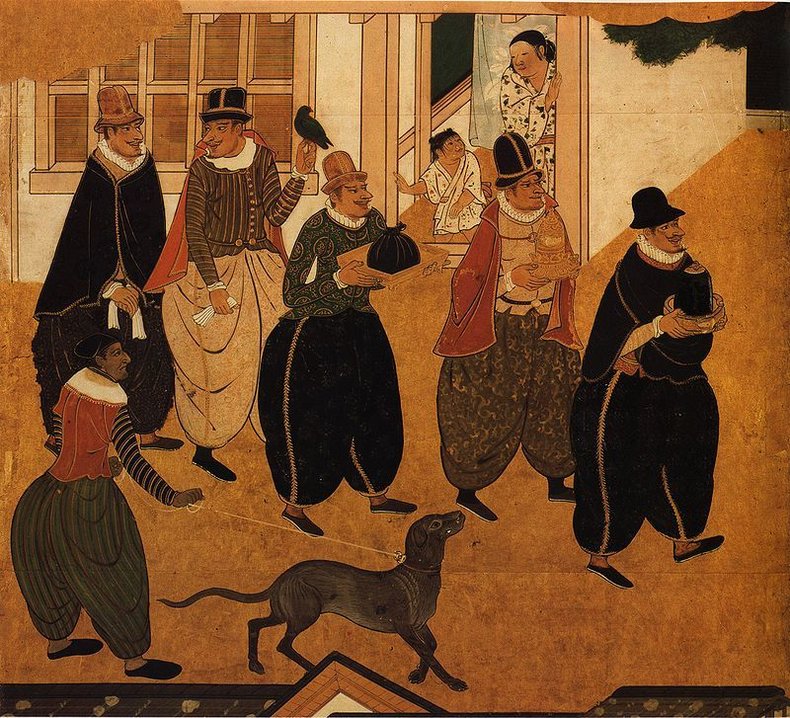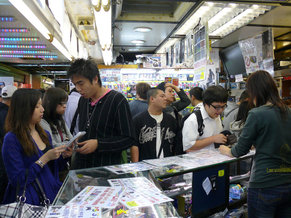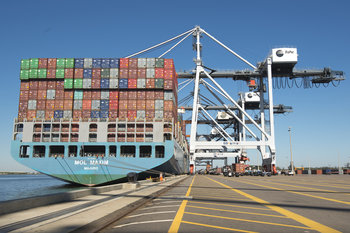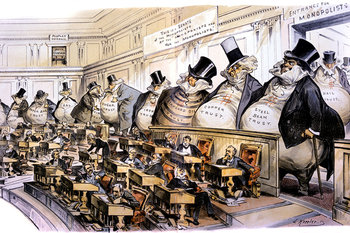
Commodities
Export firms in two different countries develop a contract to exchange 400 tons of wheat for 300 tons of soybeans without payment.Products
Neighbors agree to exchange a boat for a motorcycle.Services
A carpenter builds a garage for an electrician in exchange for some electrical work at the carpenter's summer house.Assets
The exchange of a small house in the city for 200 acres of land in the countryside.Multilateral
A barter transaction can involve multiple parties. For example, a carpenter does work for an electrician so that the electrician will do work for a solar installer so that the solar installer will do work for the carpenter.Hyperinflation
Barter transactions become more common in an environment of hyperinflation whereby local currency is rapidly losing its value. For example, workers at a bread factory may demand to be paid in bread as money becomes relatively worthless.Deflationary Spiral
Severe deflation causes the value of money to increase with time. This motivates people to hoard money and can inspire barter transactions. For example, trades of used goods such as a television for a bicycle.Markets
Two-sided markets for trading goods and services such as a digital platform for trading collectable items.Compensated Trade
A transaction that uses money to compensate for the difference in value between two barter goods. For example, a boat for a motorcycle plus $500.Reuse
Barter may be inspired by the ethic of reusing things to reduce the impact of production on the environment. For example, reuse enthusiasts who exchange bicycle parts at a repair cafe.Advantages
Bartering can be a friendly type of transaction between people in a community whereby the exact values of things don't matter because you are helping each other out. International bartering can conserve foreign exchange reserves. For example, a developing country can conserve hard currency by exchanging commodities with other developing countries.Barter is taxable in the United States and many other countries. However, it doesn't result in concrete values for transactions and is more open to interpretation.Disadvantages
Generally speaking, barter has high search costs as it requires a double coincidence of wants whereby both parties to a transaction have things the other side needs. Barter also requires intensive negotiation as values can be difficult to determine. In a situation where money loses its value due to inflation, economic activity plummets because bartering isn't nearly as efficient as money.The Myth of Barter Economies
It is a common myth that barter was a prevalent economic system in traditional economies. This is simply not true. Money is a pervasive feature of history. Early societies typically used commodities as a medium of exchange that can be considered money. For example, shells, stones, metals, barley, rice, salt, alcohol, tobacco and traditional crafts have been used as a form of commodity money. Where money didn't historically exist, traditional economies functioned on a system of personal credit whereby individuals gave to the community when they had and took when they needed based on relationships and an honor system. Historically, the double coincidence of wants required for barter made it impractical as a basis for an economic system. However, barter was common in the form of trade between peoples or nations before international systems of currency exchange were established.Barter vs Money
Barter is exchange whereby both parties will directly use what they receive in the trade. Money is a medium of exchange that isn't used directly. In the case of commodity money, the commodity is mostly used for exchange and occasionally used directly. For example, gold may be used in exchange but then eventually used in a product such as jewelry.Barter vs Gift Economy
Barter is a negotiated trade of value. The gift economy is giving to an individual or community without an explicit agreement for anything in return. Historically, the gift economy was common. In a traditional economy, a farmer who enjoys a bountiful harvest may have been expected to share it with the community. The farmer might expect something in return for this but this wasn't explicitly negotiated. For example, the community might help the farmer build a barn.| Overview: Barter | ||
Type | ||
Definition | The exchange of goods and services without a medium of exchange such as money. | |
Related Concepts | ||































